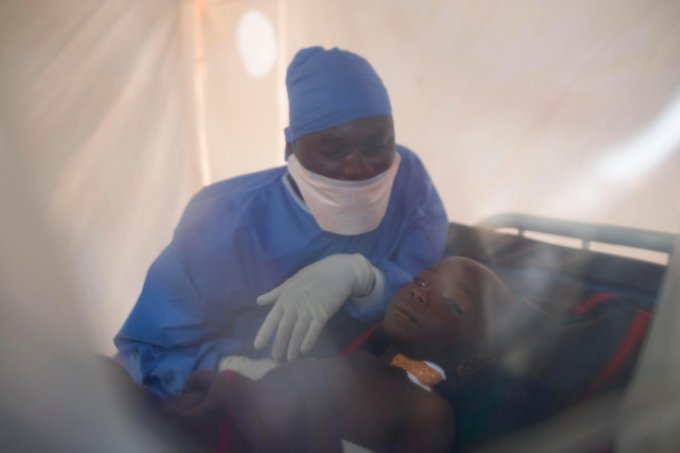- October 14, 2021
- Posted by: humanitarianweb
- Category: Humanitarian News

As Ebola is confirmed in North Kivu, Democratic Republic of Congo (DRC) following the death of four people suspected with the virus in the last month, the International Rescue Committee (IRC) is extremely concerned that another Ebola outbreak in the area will devastate a community still reeling from the last outbreak, fighting COVID-19 and seeing increasing violence and food insecurity. The last outbreak in this area was declared over just a few months ago in May of this year, whereas the last major outbreak lasting from 2018-2020 took the lives of more than 2,200 people, almost 66% of those who presented with the virus. The response was extremely challenging due to ongoing conflict in the area, and the outbreak lasted more than two years. Beating Ebola in North Kivu now will be doubly complicated given the impacts of COVID-19. The IRC is calling for swift action and direct funding to frontline aid agencies to put an end to both outbreaks.
Kate Moger, Regional Vice President for the Great Lakes at the IRC, said,
“Another outbreak in North Kivu could be disastrous if not quickly contained. People in this area have faced decades of violence by armed groups and have now, between Ebola and COVID-19, been faced with disease outbreaks for almost three straight years. These communities are still trying to rebuild from the impact the last Ebola outbreak had on their health systems, as well as the emotional trauma from an increase in violence, particularly against women – all whilst fighting COVID-19. The COVID pandemic has further exacerbated an already dire situation and led to a major increase in food insecurity and even more conflict. Women and girls are always more adversely affected during crises and we must ensure the protection of women and girls throughout each of these multiple crises.
“It is imperative we apply the lessons learned from past outbreaks to stop the spread of Ebola in DRC and beyond its borders. The IRC stands in solidarity with the affected communities and is calling for immediate action and funding for frontline aid agencies to contain both outbreaks and prevent further spread.”
There are now more people facing a severe hunger crisis in the Democratic Republic of the Congo than has ever been recorded in any country. DRC ranks in the IRC’s emergency Watchlist top five for the third year in a row, reflecting persistent volatility in a country that is now in its fourth decade of a major humanitarian crisis.
The IRC responded to the 2018-2020 Ebola outbreak in North Kivu and Ituri working in more than 70 health facilities throughout Beni, Mabalako, Butembo, Goma and Mambasa on infection prevention and control (IPC). The IRC is also working on women’s and children’s protection, and integrating Ebola-related protection concerns in areas where the IRC supports primary health care services. The IRC also worked to contain the 2014-2016 West Africa outbreak in Liberia and Sierra Leone.
The IRC has been working in the DRC since 1996 providing emergency assistance and humanitarian aid to those affected by violence and uprooted from their homes. As the country struggles to recover from decades of conflict and widespread disease, the IRC is focusing our efforts in Tanganyika, Ituri, and North and South Kivu by providing emergency health care, shelter, water, sanitation, and emergency supplies to hundreds of thousands of people in eastern and central Congo
